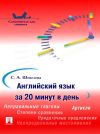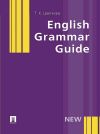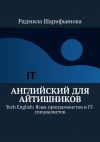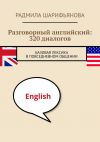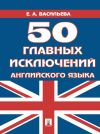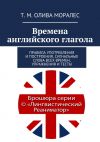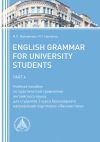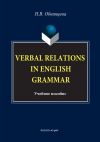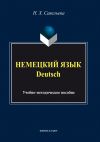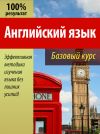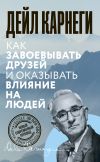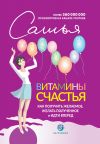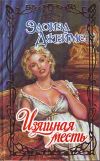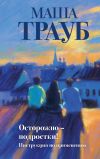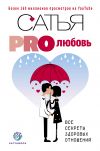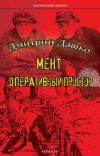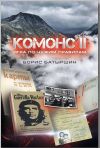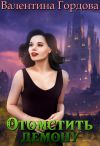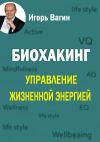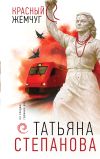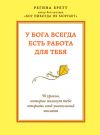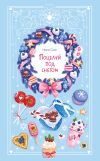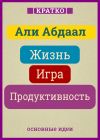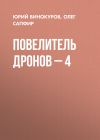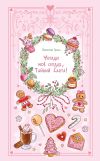Текст книги "Английский язык: самоучитель"

Автор книги: Денис Шевчук
Жанр: Иностранные языки, Наука и Образование
сообщить о неприемлемом содержимом
Текущая страница: 4 (всего у книги 20 страниц) [доступный отрывок для чтения: 4 страниц]
Активная грамматика
Language focus 1
The Present Simple (Indefinite) Tense
Настоящее простое (неопределенное) время
Настоящее простое (неопределенное) время используется для выражения обычного, периодически повторяющегося действия. Наречия-определители: часто, всегда, никогда, каждый день, каждый год, каждый месяц, иногда. В русском переводе глагол стоит в настоящем времени. Например: Он обычно читает газету по утрам. Она никогда не завтракает.
Утвердительные предложения

В третьем лице единственного числа глагола – окончание «s» / «es». Во всех остальных формах глагол – без изменений.
Если глагол заканчивается на свистящий, шипящий звук, то в третьем лице единственного числа окончание «es», которое произносится [iz]. Также это относится к глаголам do и go, форма третьего лица единственного числа которых does (но произносится она [daz]) и goes [gouz].
Особую форму имеет глагол have. В третьем лице единственного числа используется форма has.
Если глагол заканчивается на «y» с предшествующей согласной, то y меняется на «i», и прибавляется окончание «es»: She carries (to carry). Но: She buys (to buy – перед y – гласная).
Например:
3 лицо единств. число
He watches TV every evening.
She does it every day.
She goes to school in the morning.
He lives in Moscow.
It has three legs.
My wife works for this company.
She copies this text every day.
Остальные формы
They watch TV every evening.
Their friends do it every day.
The children go to school in the morning.
I live in Moscow.
The tables have three legs.
We work for this company.
You copy this text every day.
Наречия-определители
Often – часто
Always – всегда
Never – никогда
Usually – обычно
Seldom – редко
Every year / day / month / week – каждый год / день / месяц / каждую неделю
Например:
She goes to work every day.
My brother seldom plays tennis.
My husband usually buys newspapers.
I never speak to them.
He always studies foreign languages.
We travel every month.
1. Write in the verbs in the correct form.
Напишите глаголы в правильной форме.

2. Read and translate the sentences. Pay attention to the forms of the verbs.
Прочитайте и переведите предложения. Обратите особое внимание на произношение окончаний глаголов.
1. She often relaxes in the evening. ………………………………………………………….
2. David cooks dinner every day. ………………………………………………………….
3. It has a big door. ………………………………………………………….
4. Don buys new books every week. ………………………………………………………….
5. She seldom goes to the city centre. ………………………………………………………….
6. He never visits museums. ………………………………………………………….
7. Sally often travels to the South. ………………………………………………………….
8. They meet friends every morning. ………………………………………………………….
9. I seldom watch modern shows. ………………………………………………………….
10. He gets up at seven every day. ………………………………………………………….
11. He always carries her luggage. ………………………………………………………….
12. This receptionist never helps me. ………………………………………………………….
13. We usually have lunch here. ………………………………………………………….
14. She does it every year. ………………………………………………………….
15. He usually goes to work at eight. ………………………………………………………….
3. Complete the sentences. Pay attention to the forms of the verbs.
Закончитепредложения. Обратите особое внимание на написание окончаний глаголов.
Example: She often……………………………….
She often cooks dinner.
1. He seldom………………………………………………………………………………………..
2. They never……………………………………………………………………………………….
3. Pat usually……………………………………………………………………………………….
4. Every year we……………………………………………………………………………………
5. She……………………………………………………………………………………every day.
6. It often…………………………………………………………………………………………..
7. My friends always……………………………………………………………………………….
8. Every month Cathy………………………………………………………………………………
9. His wife often……………………………………………………………………………………
10. I never…………………………………………………………………………………………..
4. There is one mistake in each sentence. Find and correct it.
Найдите ошибку в каждом из данных предложений.
1. She buies bananas every week. …………………………..
2. Their children goe to school every morning. …………………………..
3. She watchs TV every evening. …………………………..
4. Your sister relaxees every week. …………………………..
5. We cook often pizza. …………………………..
6. Ann go to work every day. …………………………..
7. My mother haves three children. …………………………..
8. He studys German at achool. …………………………..
5. Translate the sentences into English.
Переведите предложения на английский язык.
1. Он путешествует в Египет каждый год. ………………………………………………..
2. Его дети редко ходят в музеи. ………………………………………………..
3. Он всегда несет багаж своей жены. ………………………………………………..
4. Я часто смотрю в окно по вечерам. ………………………………………………..
5. Пэт изучает немецкий в школе. ………………………………………………..
6. Он никогда не ходит на работу по утрам. ………………………………………………..
7. Она любит искусство Востока. ………………………………………………..
8. Он обычно добирается до центра города на машине (by car)…………………………………..
9. Мы редко слушаем современную музыку. ………………………………………………..
Language focus 2
The Present Simple (Indefinite) Tense
General and Special Questions
Настоящее простое (неопределенное) время
Общие и специальные вопросы
Чтобы задать общий вопрос, используется вспомогательный глагол do или does в зависимости от лица. Для третьего лица единственного числа, где глагол имеет окончание «s» / «es», используется вспомогательный глагол does. В вопросе он как бы «съедает» окончание «s» и «es» глагола.
Например:
She plays tennis.
Does she play tennis? – Она играет в теннис?
He goes to work every day.
Does he go to work every day? – Он ходит на работу каждый день?
Для всех остальных лиц и чисел (где нет окончания «s» / «es») используется вспомогательный глагол do.
Например:
They often listen to modern music.
Do they often listen to modern music?
You travel every year.
Do you travel every year?
Для того чтобы дать краткий утвердительный ответ, используется соответствующий вспомогательный глагол do или does.
Do you travel every year? Yes, I do.
Does she like the museum? Yes, she does.
Для того чтобы дать отрицательный ответ, снова используется соответствующий вспомогательный глагол do или does.
She lives in London. Does she live in London? She doesn’t (does not) live in London.
They meet every week. Do they meet every week? They don’t (do not) meet every week.
Чтобы задать специальный вопрос, используется такая формула:
Вопросительное слово+вспомогательный глагол+подлежащее+основная форма глагола?
Или короче,

7. Ask General Questions. Give negative answers.
Задайте общие вопросы. Дайте отрицательные ответы.
Example: He always gives her presents. Does he always give her presents? He doesn’t always give her presents.
1. They speak French every day.
2. He often studies in the evening.
3. She has a modern computer.
4. My sister calls me Dan.
5. The receptionist usually works with documents.
6. He likes modern art.
7. My friends seldom visit museums.
8. We often send letters to our friends.
8. Complete the questions.
Закончите вопросительные предложения.
1. Does she………………………………………………………………………………………..?
2. Does your friend……………………………………………………………………………….?
3. Do they…………………………………………………………………………………………?
4. Do you………………………………………………………………………………………….?
5. Do your guests………………………………………………………………………………….?
6. Does the artist…………………………………………………………………………………..?
7. Does your husband……………………………………………………………………………..?
8. Do your children……………………………………………………………………………….?
9. Match the questions with the answers.
Подберите подходящий ответ к каждому вопросу.

10. Read the questions and translate them. Underline the auxiliary verb.
Прочитайте вопросительные предложения и переведите их. Подчеркните вспомогательный глагол.
1. Where do they buy modern programmes?……………………………………………………….
2. Why do they live in the city centre?………………………………………………………….….
3. When does he visit this exhibition? ………………………………………………………….….
4. With whom do they study English?…………………………………………………………..….
5. Do they know various customs?..…………………………………………………………….….
6. When does this shop work? …………………………………………………………………….
7. When does she send letters?………………………………………………………………….….
8. What does she always show the guests?…………………………………………………………
9. How do you get to that bridge?………………………………………………………………….
10. Where does he travel every year?………………………………………………………………
11. Ask one General and one Special question.
Задайте один общий и один специальный вопрос.
Example: My sister travels to the east every year.
Does my sister travel to the east every year?
Where does my sister travel every year?
1. Dan drives a car very well.
2. They often see this bridge.
3. They study simple things.
4. We like this receptionist.
5. Denis Shevchuk calls me every day.
6. I send her letters every week.
7. He shows them the Underground.
12. Give negative answers.
Напишите отрицательные ответы.
1. Can you visit this church?
2. Do you often visit this church?
3. Does she always visit this church?
4. Do they like the modern museum?
5. Is this a modern museum?
6. Are these modern museums?
7. Can you see a modern museum in the city centre?
READINGAND SPEAKING PRACTICE1. Answer the questions.
Ответьте на вопросы.
1. Do you live in the city centre?
2. Do you like to travel?
3. Where do you like to travel and why?
4. Do you like to visit museums?
5. What exhibitions do you like?
6. What exhibitions does your wife / husband like?
7. Does your wife / husband like to send letters?
8. Do you often have guests in your house?
9. What sights do you show your guests?
10. Does your wife / husband often call her / his friends?
2. Read about these people. Now speak about them.
Прочитайте информацию об этих людях. Теперь расскажите о них от третьего лица.
Example: Daniel lives in the city centre. He has many friends, etc.
Daniel
I live in the city centre. It is a lovely place. I have many friends. We meet very seldom because we have much work. But we call each other every day. We speak about our problems and about girlfriends.
Every weekend we go to the cinema or to the theatre. We have lunch in sandwich bars or cafes. I always eat Italian pizza.
In summer we always travel to various countries. It is expensive but we buy cheap tickets. We are very friendly.
Fiona
I have a family. It is not very big: my husband, our two children and me. I don’t work. I help my children to study at school. My husband works for a big multinational company. He gets much money. We want to buy a house, but now we live in a flat. It is small and simple. But we like it. It is modern. We like to sit in the living room, watch TV and listen to classical music. In the evening my husband John plays the guitar.
At the weekend we go to play tennis.
Samuel
I study foreign languages at college. It is expensive for my parents. They give me money for my studies. But I study very well. I study French, Japanese and Arabic languages. It is very interesting. I study the customs of these countries. I think I can get a good job.
I don’t have many friends. I have no time to see them. But I call my parents and send letters to them.
3. Think of three questions that you could ask Daniel, Fiona and Samuel. Think of possible answers.
Придумайте по три вопроса Дэниэлу, Фионе и Сэмуэлю. Придумайте ответы на них.
4. Read these sentences. Underline the words from the Active Vocabulary.
Close your eyes. How many sentences can you recollect?
Прочитайте предложения и подчеркните новые слова урока.
Закройте глаза и постарайтесь вспомнить как можно больше из данных предложений.
1. I work as a receptionist in a modern office.
2. He often travels to various countries.
3. We don’t like to listen to pop music.
4. I can show my guests various sights.
5. Those museums are in the city centre.
6. That artist can have an exhibition.
7. Does he work in the shop?
8. When does she call her friends?
9. He would like to carry her luggage.
10. This country has many strange customs.
5. Make up dialogues putting the sentences in the right order.
Составьте диалоги, расставив предложения в логическом порядке.
A.
Over there. To the platform four.
Yes, madam? Would you like me to help you?
Yes, please. Could you help me carry my luggage?
Excuse me?
Yes, madam.
Yes, please. Where to?
B.
It’s nice. How about Saturday?
I think the style is very simple but nice. And I can understand this artist very well.
Do you like the exhibition, Mary?
Would you like to go to the exhibition in Stanford museum? My mother likes it a lot.
Yes. It is very interesting. What about you?
Saturday is O.K. with me.
C.
Would you like to travel in summer?
Do you want to go to Italy or Spain?
In June. The weather is very nice in June in Spain. Are the tickets very expensive?
Yes, they are expensive. But I think our way is very nice.
Yes, I think it is lovely.
To Spain. This country has many interesting customs.
Good.
O.K. Can you go in June or in July?
D.
Would you like to see the sights of the square and the park?
What can I see there?
Yes, of course.
Good.
We have three old churches, a museum of our city, many old bridges, a modern stadium and of course, many shops.
Yes, I think it is a good idea.
We can do it in the evening or in the afternoon.
Could you show me the city centre?
6. Read the dialogues and try to remember them.
Прочитайте диалоги и постарайтесь их выучить.
A.
Jim: I’d like you to meet my wife Diana, Faby.
Faby: Pleased to meet you.
Diana: Nice to meet you, too.
Faby: How are your children?
Jim: They are fine. Now they study at college.
Faby: Oh. How old are they?
Jim: They are sixteen and fourteen.
Faby: What do they study?
Jim: They study art. They like it very much.
Faby: Do they study well?
Jim: Oh, thank God, very well.
B.
Liz: What a nice dress!
Debora: Thank you.
Liz: Do you buy your dresses in Rodley shop in Stansley Road?
Debora: Yes, I like the shop. And the people who work there are very friendly.
Liz: Is the shop expensive?
Debora: Yes, it is. But it is lovely.
Liz: Does your husband go to this shop too?
Debora: No, he doesn’t like modern style.
Liz: Which shops does he like?
Debora: He goes shopping to the Daby’s.
Liz: Where is this shop?
Debora: It is in Bristol Road.
7. Read this text.
Прочитайте текст.
A Foreign Student.
My name is Pauline. I have a family: my husband and me and my two children, two girls. My husband works for a limited company. We are a very friendly family. Our children study at school. We like to meet various people. Very often we invite children from foreign countries to live with us. They come to London and study here for a month or two. The main reason is that it is very nice for my girls to see various people, to get information about various customs. They like it a lot.
We have a modern house and our guests like it. They live in their room. It is simple but lovely. In the evenings we speak to our guests about their countries, drink English tea and relax.
Now we have a very nice guest. It is a girl. Her name is Graziella. She is from Italy. She studies at college in London. She is a good student.
At the weekend my husband Robert shows her various sighs of London. He shows her the museums, the squares, the Tower and the Tower Bridge. He shows her the London Underground Map, how to get to school. My children don’t like to go to churches, but they go to the shops with Graziella.
Graziella likes our customs and our sights very much. She studies English here. She can speak English very well now. We always speak English to her. She can understand us. But we don’t understand Italian.
Are the sentences true or false?
Верны или не верны данные предложения?
1. Pauline doesn’t like foreign guests.
2. Her children don’t study.
3. Their house is modern.
4. Now they have a student from Japan.
5. Robert shows Graziella the sights of London.
6. Graziella can’t speak English.
Lesson 5. A plaсe to live

LEAD-IN
1. Answer the questions about yourself.
Напишите ответы на вопросы о себе.
1. Where do you live?
2. Where would you like to live and why?
3. Is your city / town modern or old?
4. What sights can you show you guests?
5. Do you live in the city / town centre?
6. Do you live in a flat or in a house?
7. Is your flat / house big or small?
8. How many rooms do you have?
9. Do you often have guests?
10. Do you like the place where you live?
2. Read the answers. Write the possible questions.
Прочитайте ответы. Напишите возможные вопросы к ним.
No, they don’t.
No, I don’t.
Yes, I do.
No, she doesn’t.
No, he doesn’t.
No, we don’t.
Yes, they do.
Yes, she does.
3. Write 10 sentences using the verbs.
Напишите 10 предложений, используя и глаголы.
Carries, doesn’t buy, lives, has, reads, go, studies, don’t meet, listens, look.
4. Make up questions. Start them with the words given.
Составьте вопросы, начинающиеся с данных вспомогательных глаголов или вопросительных слов.
1. Do our friends…………………………………………………………?
2. Does the receptionist…………………………………………………………?
3. Can your children…………………………………………………………..?
4. Do Ann and Sam…………………………………………………………?
5. Where do they………………………………………………………?
6. Why does your mother…………………………………………………?
7. Are the museums……………………………………………………….?
8. Is the exhibition…………………………………………?
9. Does……………………………………………………….?
10. When……………………………………………………………….?
5. Find one word in each sentence that shouldn’t be there. The first has been done for you.
Найдите одно лишнее слово в каждом предложении. Первое предложение выполнено как пример.
1. My sister meets to her guests in the living room.
2. He doesn’t likes to listen to classical music.
3. I would like to watch at TV.
4. Give to me a new pen, please.
5. My father comes home from the work at seven.
6. My guests to look for a new computer.
7. When does he my brother come home?
8. They can to travel in summer.
9. The car is in the front of the house.
10. These programmes are do not modern.
FOCUS ON VOCABULARYАктивный словарь
Nouns
1. fireplace – камин
fire – костер, огонь
2. loft – чердак
3. kitchen – кухня
4. animal – животное
5. dock – док
6. downtown – деловая часть города
I live in the downtown.
7. duck – утка
8. environment – окружающая среда
9. freedom – свобода
to be free – быть свободным
10. gas – газ
11. lifestyle – стиль жизни
12. river – река
13. sea – море
14. nature – природа
15. furniture – мебель
16. tree – дерево
Adjectives
1. available – доступный, наличный
2. double – двойной
a double bed – двуспальная кровать
3. further – более отдаленный, дальнейший
further plans
4. furnished – меблированный
a furnished house
5. natural – естественный, природный
natural gas
6. pleasant – приятный
7. favourite – любимый
8. preferred – предпочитаемый
9. relaxing – расслабляющий
relaxing environment
Verbs
1. to contact – сотрудничать, общаться с
2. to rent – брать в аренду
to rent a flat / a cottage
3. to enjoy – наслаждаться
I enjoy fishing.
4. to locate – размещать
We plan to locate it here.
5. to move – двигаться, передвигать
6. to go skiing – кататься на лыжах
7. to go fishing – рыбачить
8. to prefer – предпочитать
9. to stay – оставаться
I want to stay at home.
10. to think – думать
I think that it is nice.
Word Combinations
1. How many? – Сколько
How much? – Сколько (с неисчисл.)
2. pretty features – прекрасные черты
3. Let me show you around.
Разрешите показать Вам квартиру / дом.
4. through here – пройдя через
5. electrical power – электроэнергия
6. public utility – коммунальная услуга
1. Fill in the gaps.
Заполните таблицу

2. Match the two halves of the words.
Найдите вторую половину слова.

3. Make sentences with the two words given.
Составьте предложения, используя данные слова.
Example:

4. Translate into English.
Переведите на английский язык.
1. Я предпочитаю жить у реки.
2. Он арендует дом с электроэнергией.
3. Не могли бы Вы рассказать мне о своих дальнейших планах?
4. Я не могу общаться с этими людьми, их телефон недоступен.
5. Он хочет расположить дом в деловой части города.
6. Он не может переместить камин, это сложно.
7. Она предпочитает меблированные квартиры.
8. Я могу наслаждаться свободой здесь.
9. Коммунальные услуги очень дорогие.
10. Мои дети хотят остаться дома и ходить на рыбалку.
5. Write a General question and give a negative answer to it.
Напишите общий вопрос и дайте отрицательный ответ на него.
Example: The house has a large kitchen.
Does the house have a large kitchen? No, it doesn’t have a large kitchen.
1. He locates his garage near the house.
2. She enjoys natural environment.
3. The ducks live in the river.
4. This furnished flat is available.
5. Those rooms have gas and electrical power.
6. We can contact these pleasant people.
7. She enjoys fishing and diving.
8. He can show me around.
9. We live in the downtown.
Language focus 1
Prepositions of place
Предлоги места

6. Translate the sentences.
Переведите предложения.
1. I can’t see my book among these books.
……………………………………………………………………………………………………
2. We want to locate the house between the river and the road.
……………………………………………………………………………………………………
3. I can see many trees around the house.
……………………………………………………………………………………………………
4. The ducks are over the river.
……………………………………………………………………………………………………
5. The loft is under the roof.
……………………………………………………………………………………………………
6. We want to rent a garage behind our house.
……………………………………………………………………………………………………
7. You can see many children among us.
……………………………………………………………………………………………………
8. The chairs are near the fireplace.
……………………………………………………………………………………………………
7. Read and draw.
Нарисуйте.
A furnished house;
a garage behind the house;
two trees in front of the house;
a cat between the two trees;
two ducks over the house;
a double bed in the house;
an old fireplace among the furniture;
a gas line around he house.
8. Answer the questions using various prepositions of place (on, in, over, under, behind, in front of, among, between, around, near).
Ответьте на вопросы, используя различные предлоги места (на, в, над, под, за, перед, среди, между, вокруг, около).
Where is the new furniture?
Where are the apple trees?
Where are the ducks?
Where is the loft in this house?
Where is the fireplace?
Where is the kitchen?
Where are my favourite flowers?
Where is the pleasant enviroment?
Where is the flat that you want to rent?
Where is the electrical power station?
Language focus 2
Rooms and furniture
Комнаты и мебель
What does your house have?
bedroom-спальня
bathroom-ванная комната
toilet-туалет
kitchen-кухня
balcony-балкон
hall-коридор
dining room-обеденная комната
playroom-игровая комната
living room-гостиная
garden-сад
Furniture in your house
shower-душевая кабина
bath-ванна
window-окно
chair-стул
bed-кровать
door-дверь
bookcase-книжный шкаф
wardrobe-гардероб
carpet-ковер, ковролин
linoleum-линолеум
wallpaper-обои
sofa-диван
home equipment-домашнее оборудование
ceiling-потолок
lamp-лампа
DVD-player-DVD проигрыватель
hi-fi-музыкальный центр
TV set-телевизор
curtains-занавески, гардины
cooker-плита
radiator-обогреватель
flower pots-горшки с цветами
washing machine-стиральная машина
armchair-кресло
9. Say whether these sentences are true or false.
Укажите, верны ли данные предложения.
Example: Your house / flat is near the river.
No, it isn’t near the river.
1. Your house / flat has a big hall.
2. You have a lot of home and kitchen equipment.
3. You listen to your hi-fi every day.
4. You have carpets in all the rooms.
5. You can see a garden from the window.
6. You like to take a shower.
7. The bedroom has a sofa.
8. You have bookcases in all the rooms.
9. Your cooker is modern.
10. The windows have beautiful curtains.
10. Write General or Special Questions with the following words.
Напишите Общие или Специальные вопросы с указанными словами.
balcony
hall
curtains
shower
equipment
armchair
bookcase
garden
TV set
11. Complete the sentences.
Дополните предложения.
Our flat / house has…………………………………………………………………………………
Our living room has…………………………………………………………………………………
Our playroom has…………………………………………………………………………………..
Our kitchen has…………………………………………………………………………………….
Our hall has…………………………………………………………………………………………
Our bedroom has……………………………………………………………………………………
Внимание! Это не конец книги.
Если начало книги вам понравилось, то полную версию можно приобрести у нашего партнёра - распространителя легального контента. Поддержите автора!